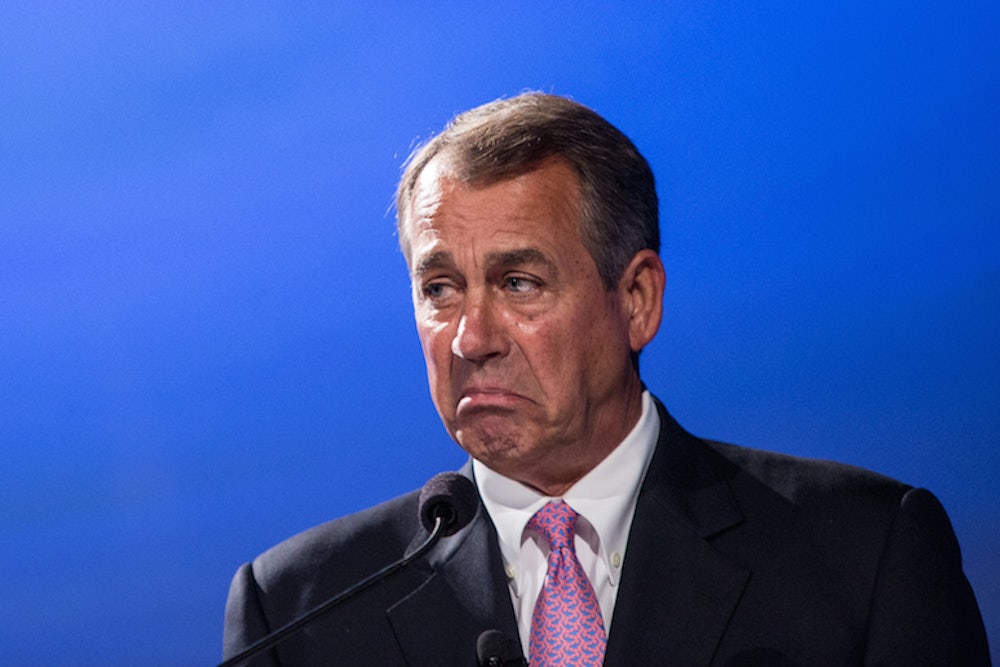New comments from President Obama and House Speaker John Boehner suggest neither man is quite ready to give up on immigration reform—and that, just maybe, it still has a small chance of becoming reality.
Obama on Friday used a stop on his Asian tour, a naturalization ceremony in South Korea, to plug the Senate-passed bill that is sitting in the House of Representatives. “There's no greater strength, no greater essence of America than the fact that we attract people from all around the world who want to be part of our democracy,” he said, urging: “we’ve got to fix our broken immigration system and pass common-sense immigration reform.”
Boehner’s remarks came during a town hall meeting on Thursday, in his home district in Ohio—and they’ve quickly gone viral, thanks to video taken of his colorful performance. “Here's the attitude: Ohhhh. Don't make me do this. Ohhhh. This is too hard,” he howled dramatically to the crowd. “We get elected to make choices. We get elected to solve problems and it’s remarkable to me how many of my colleagues just don’t want to ... They’ll take the path of least resistance.” You can watch the video below.
Comments like these won’t shake the pessimism, shared by most savvy political observers, that immigration reform is dead. And with good reason: Reform can’t get through the House unless and until the conservative rank-and-file, and some House GOP leaders, drop their opposition. There are no signs of that happening, which is why immigrant-rights advocates have turned to pushing Obama for executive action to stop deportations instead. But if reform were to pass, insiders say there are two opportunities for it to do so—this summer, after the height of primary season is over; or the lame duck period after November’s elections.
The thinking here is simple. There’s no way Republicans will tackle the issue in the middle of the primaries this spring, with a number of sitting members fending off challengers from the right. But by this June and July, the races where immigration could conceivably become divisive—in Ohio, for example—will be over, and the midterms will still be months away. In that window, Republicans might feel safe enough to bring up the bill. (Advocates deride the idea that Republicans are waiting out the primaries, and point out that Senators who voted for reform look strong in their own races.) If the summer opening fails, the House could bring up the bill during the lame duck period in the late fall and early winter: After the next House has been elected, but while the current one is still sitting, when those who lost their races theoretically have nothing left to fear.
“Far better to shoot for June-July than the lame duck, as lame ducks are never as productive as people hope they will be.” Simon Rosenberg, president of the center-left New Democrat Network, said in an email. “I still think we have a shot, but all the focus of the reform community needs to be moving the House GOP.” Rosenberg, in general a supporter of the administration’s immigration policies, called immigration groups’ efforts to pressure the president “counter-productive.”
He also spoke hopefully about Boehner’s comments, which are the Speaker’s most strongly-worded to date. Both Boehner and the White House say the Speaker and the President have been in close talks on immigration—and many believe Boehner fully recognizes the demographic necessity of reform for the future of the GOP.
Boehner’s press secretary walked his comments back in an e-mail yesterday, writing, “Everyone can tell their editors to chill. … Nothing has changed.” Well, almost nothing. Now everybody is talking about immigration again. Maybe that’s what Boehner and Obama wanted to achieve.
